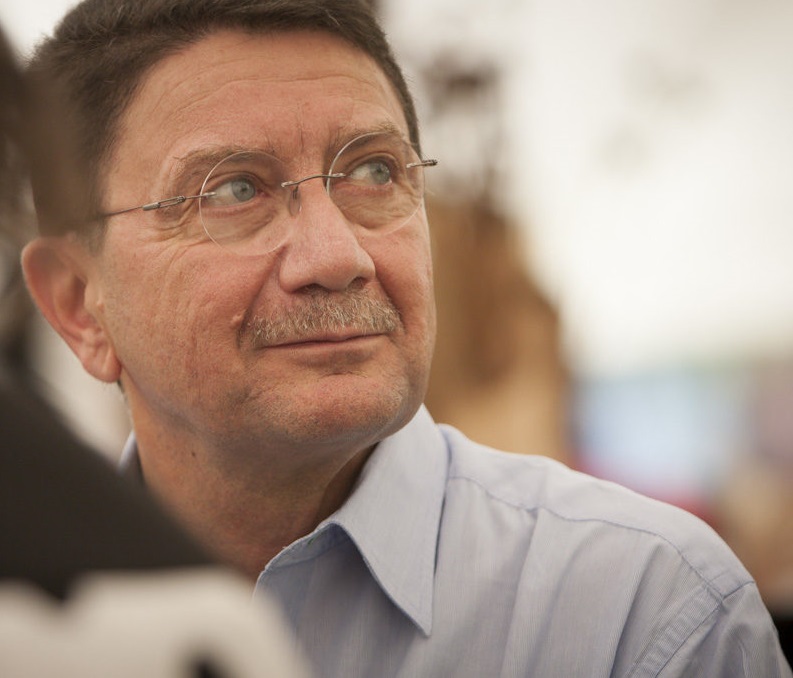

WTTC: 700,000 Travel & Tourism jobs at risk under No-Deal Brexit
Over 300,000 jobs could be at risk in the Travel & Tourism sector in the United Kingdom and almost 400,000 in Europe if the UK leaves the EU without a deal on 29 March, according to a new analysis from the World Travel & Tourism Council released today.
A “No Deal” Brexit would have a damaging impact on one of the UK’s most important economic sectors.
According to WTTC, which represents the private sector of Travel & Tourism globally, the industry contributes more than €1.5 trillion to the EU’s GDP (10.3% of total) and supports 27.3 million jobs (11.7% of total). In the UK, the sector contributes £213.8 billion to GDP (10.5% of total) and supports four million jobs (11.6% of total).
The WTTC analysis models the impact on the Travel & Tourism sector over the next decade, based on the 7.7% forecasted fall in economic activity across the wider UK economy modelled by the International Monetary Fund (IMF). In this situation, a No Deal Brexit would result in:
- A loss of 308,000 jobs in the UK economy
- A loss of 399,000 jobs in the rest of the EU
- A loss of £18.6 billion in GDP to the UK economy
- A loss of £22.0 billion in GDP to the economies of the rest of the EU
To minimize the impact, it is crucial that:
1. The UK should continue to have access to the Single Aviation Market
2. Visa-free travel between the UK and EU should be maintained and the movement of people should be as seamless as possible while maintaining security
3. The mobility of labor for Travel & Tourism employees across the UK and EU should continue
4. Security co-operation to avoid hard border checks and lengthy delays are paramount
Gloria Guevara, President & CEO, WTTC said, “The UK is the fifth largest Travel & Tourism economy in the world. Given its importance to the UK economy, it is now clear that a No Deal Brexit would have a dramatic impact on one of the UK’s most significant sectors.”
“If the IMF prediction on the wider economy is realised, there would be a total cost across Europe of over £40 billion and over 700,000 jobs compared to our projections. Our Members are already seeing an impact on their businesses and workforce.”

Passed away Dr. Walter Mzembi speaks to eTN from Heaven
The former Minister of Tourism and Hospitality for Zimbabwe, Dr. Walter Mzembi talked to eTurboNews Sunday night from his residence in Johannesburg after social media and numerous Zimbabwe and South African news sources reported that he was at a South African hospital and lost his battle with cancer in the early hours of Saturday morning.
Mzembi told eTurboNews: ” I am talking to you from heaven, but this wasn’t funny. My daughter in Europe was woken up by this news and called me in panic.”
Earlier media reports claiming former Foreign Affairs minister Walter Mzembi has passed on have been dismissed as “idle nonsense” by his former G40 political ally Professor Jonathan Moyo.
The security and political situation in Zimbabwe seems to be escalating.
eTurboNews talked to the Hon Job Sikala, a member of parliament. He said: “We can’t continue living in primitivity in silence. As a lawyer defending 150+ political prisoners, including children as young as 14, the government is using rape as a torture method. People disappear here.”
Zimbabwe President Emmerson Mnangagwa has launched a diplomatic offensive in an effort to tell his side of the story in the face of global condemnation sparked by the deadly clampdown by the army in the aftermath of the January 14 protests against steep fuel price increases.
On Friday, the United States and the United Nations added their weight to calls by the international community for Mnangagwa to rein in the army, which is accused of killing at least 12 people and shooting of over 78 civilians. According to his spokesperson George Charamba, the Zanu PF leader was forced to skip his so-called “Thank You” rally scheduled for Mt Darwin in order to apprise regional leaders about the situation in Zimbabwe ahead of an Africa Union Summit set for Ethiopia in a few days’ time.

Taleb Rifai concerned about emerging trends in Amsterdam
As former Secretary General of the UNWTO, the specialized agency of the UN mandated with promoting healthy and sustainable tourism, I am watching with concern some of the emerging trends in beautiful Amsterdam. Amsterdam, once known as one of the best examples of a city welcoming sustainable tourism growth in a responsible and manageable manner is starting to turn its back on tourism. Today, I argue, Amsterdam is at an inflection point; it can either use tourism to its advantage or waste the opportunity.
During my career, I have seen cities utilizing the full benefits of tourism and seeing it as an opportunity not only to contribute to the economic well-being of its citizens, but also as a powerful tool for engaging and interacting with other cultures. Such cities use tourism to break down barriers and stereotypes and in turn further tolerance and understanding, contributing to world peace. I have seen Denmark for example engaging with the tourism industry to ensure more tax revenues, London working hard to bring tourism benefits to outer boroughs and now Palermo involving its citizens in tourism decision.
I have also seen cities demonize tourism and reach the quick assumption that the problem is in tourism itself and the very nature of this human activity. The easy conclusion would be, therefore, to cut down the numbers and blame it on easy targets such as Airbnb and others. Such cities choosing for the “easy way out” solutions end up, in many cases, embracing a “populist” approach to their challenges. Such cities rely more on emotions and less on fact, but more seriously and, typical of the populists politics and tactics, appeal to anger and fear, in this case tourism and anything that is different and foreign becomes the enemy. I have seen policy-makers fueling xenophobia in popular European destinations for example, cities that continue promoting its tourist hotspots instead of hidden gems and now Amsterdam wanting to limit its own residents to share their homes with visitors.
Tourism, like any grand human activity, that has grown in an impressive manner in the last 70 years, has a downside to it, but that should never distract us from the opportunities it offers, when well managed, to make this world a better place. Travel and tourism is responsible for over 10 percent of the global GDP, equivalent to 1 in 10 jobs, and grows faster than the global economy itself. The UNWTO estimates that by 2030 there will be 1.8 billion travelers crossing international borders yearly. Whether this translates in 1.8 billion opportunities, or 1.8 billion disasters is up to us and how we manage this impressive growth.
Amsterdam, the city which very foundation is built on openness and trade, the city that invested heavily in growing tourism in the last decade, is today heading down a different path. Instead of preparing for the expected 25 million visitors in 2025, it is focusing on limiting capacity for overnight guests. Instead of allowing more Amsterdammers to profit from tourism, it is proposing to limit and even ban home sharing in certain areas. And instead of growing the current 70,000 tourism related jobs and the over €2 billion direct economic gains generated by tourism, it is choosing to have less and scapegoating tourism.
Once a city becomes known not to welcome more visitors, it will lose everything and not only the numbers that it does not want. Let’s not forget over one in ten jobs are dependent on tourism in Amsterdam.
Rather than continuing its current policies – which it has been pursuing for the last few years without any desired effect – Amsterdam should focus on long term tourism management solutions as tourism continues to grow. Firstly, Amsterdam should focus on maximizing the benefits of tourism to all citizens through creative ideas. Making sure every citizen not only shares in the profits of the tourism business, but actually profits from the very business itself and creates their own self-employment; Secondly, Amsterdam needs to better disperse the crowds of visitors over time and space, to decrease seasonality and alleviate the pressure from the city center and bring economic benefits to communities that have not typically benefited from tourism, beyond tourist hotspots; Lastly, Amsterdam policy-makers need to encourage the tourism industry to come together, boost public-private partnerships and seek collaboration between sectors to catalyze the change needed to keep tourism destinations healthy.
Tourism, when well managed, provides an incredible boost to host communities. I therefore plea to Amsterdam policy-makers to work together with the tourism industry, not against it. Poor management is the demon, the enemy, not tourism and its growth
